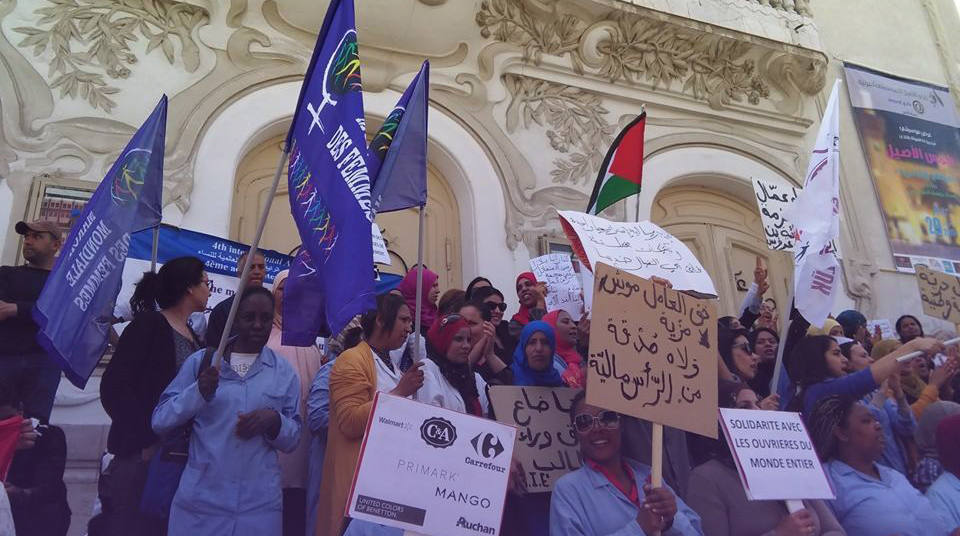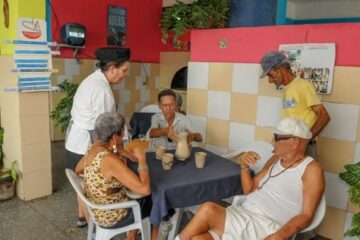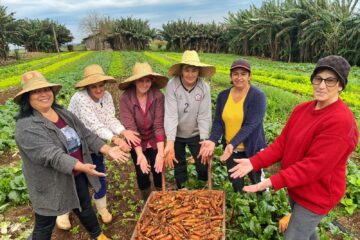The term “informal economy” encompasses individuals “who work outside the formal legal framework, without official registration and regulation in compliance with labor and social protection laws”. This definition is provided by the International Labor Organization.
The concept of informal economy continues to pose challenges in economic and research circles in general. The conceptual difficulty arises from the social complexity of the phenomenon, and the variations in its manifestations from one country to another, particularly between wealthy global centers and impoverished peripheral regions. In addition, working in the informal economy is associated with the phenomenon of ‘precarious employment,’ which is influenced by various factors including working conditions, low incomes, and the absence of legal regulations.
Research focusing on emergent social and economic phenomena in contemporary societies often neglects to address how these issues affect women, resulting from structural transformations in the economy and society. And at times, when this concern exists, it is marginalized or given peripheral attention.
The social vulnerability of women working in the informal economy is embedded within political and social contexts dominated by phenomena such as unemployment, regional and socioeconomic disparities, and economic downturn. These phenomena often affect the most vulnerable segments of society, with women being particularly impacted. Their resort to be engaged in the informal economy can be seen as a social response to the shortcomings of the formal economy in accommodating them, and as an evidence of their exposure to gender and social discrimination in their quest for employment.
According to the 2014 population census, approximately 306,000 Tunisian women were estimated to be working in the informal economy, making up about 32.5 percent of the employed population. These women are involved in a range of occupations within the informal economy, such as agriculture, trade, domestic work, tailoring, and various other professions. Among these occupations, agriculture, and trade attract the highest proportion of female workers, accounting for 33.3 percent and 35.5 percent, respectively.
The Informal Economy: Feminine Hardship
The lack of a legal framework for seasonal agricultural work exposes Tunisian female workers to vulnerability in terms of their health, legal protection, and financial stability. The existing legal framework for seasonal agricultural work no longer meets the requirements and challenges of the sector. As a result, hundreds of thousands of women engaged in agricultural work face significant risks due to the seasonal nature and harsh conditions of the job. These workers endure hazardous conditions without any form of protection and struggle with extremely low wages, all while remaining voiceless in their plight.
Transportation in Perilous Conditions
The transportation of female workers in the agricultural sector has been a recurring topic in the media over the years. Each fatal accident triggers widespread public anger, and prompts politicians from different parties to deliver speeches. However, despite the outcry, transportation conditions remain unchanged, and no laws have been enacted to address these perilous circumstances. It is worth mentioning that according to the Tunisian Forum for Economic and Social Rights, inadequate transportation in the agricultural sector led to 40 fatalities and 496 injuries in 2019.
The Absence of Protection and Social Coverage
Under the current legal framework, female workers in the agricultural sector lack social security coverage, leaving them unprotected from work-related incidents. And like many workers in Tunisia, they are unable to obtain a retirement plan that ensures their well-being in old age. This happens despite the inherent risks in this sector, such as exposure to harsh weather conditions including rain, wind, and scorching sun, as well as direct contact with fertilizers and chemicals, in addition to road accidents. According to the latest statistics from the General Administration for Agricultural Studies and Development, a mere 3% of female workers in the agricultural sector have social security coverage.
Inadequate Wages in Exchange for Strenuous Labor
Besides the numerous risks involved, agricultural work is physically demanding. Women engaged in agricultural activities begin their day early, attending to household chores, their spouses, and their children before heading to the fields. A study conducted by the Tunisian Association of Democratic Women on female workers in the agricultural sector revealed that these women work an average of 13 hours per day, receiving only half the wages of their male counterparts who work an average of 9 hours per day. Moreover, they are deprived of rest days and are unable to find any leisure time, which takes a toll on their mental and physical health.
A Set of Recommendations
Based on extensive research on the topic, several recommendations arise to overcome the harsh reality faced by this group of workers. These recommendations include:
Improving the legal and institutional system for seasonal work in the agricultural sector: developing a dedicated legal framework that takes into account the unique characteristics of seasonal agricultural work in Tunisia. This can be achieved by involving relevant stakeholders such as professional organizations, unions, and associations in the process, ensuring that the fundamental principle in drafting the legislation is to adapt it to the realities on the ground through actively consulting those directly involved and affected.
Enhancing the social protection system for female workers in the agricultural sector is of utmost importance: This entails modifying and expanding existing programs which cover savings mechanisms that cater to the unique needs of female seasonal agricultural workers, placing special emphasis on bolstering social security measures. This is vital in order to protect their earnings and safeguard their overall welfare, as the current proposed schemes are ineffective, leaving female workers in the informal sector vulnerable and devoid of any form of protection.
Organizing and officially recognizing the transportation of female workers in the agricultural sector: Ensuring strict enforcement of the newly established law that governs their transportation, and promptly improving its terms and conditions for better effectiveness. This should be carried out as part of a comprehensive transportation policy specifically tailored for the agricultural sector. Moreover, it is essential to allocate the necessary funds and resources to ensure the successful implementation of this law, guaranteeing safe and proper transportation for all female workers in the agricultural sector.

Souad Mahmoud is a member of the World March of Women Tunisia, the Tunisian Association of Democratic Women (Association Tunisienne des Femmes Démocrates—ATFD), and the Tunisian General Labor Union (Union Générale du Travail Tunisien—UGTT).




